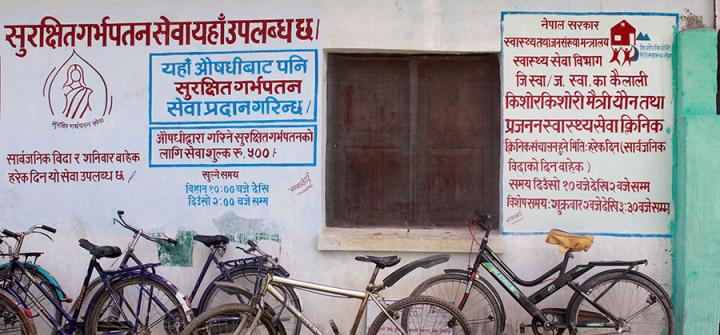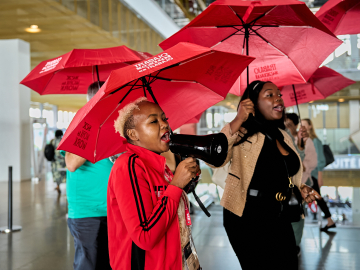Watered-Down Words Jeopardize Women and Girls
In the push to advance universal health coverage, certain governments have advocated for watered-down language surrounding sexual and reproductive health rights to dilute international declarations. But UHC cannot be comprehensive without strong language defining sexual and reproductive health care as an integral part of health and well-being—including abortion care.
After September’s UN High-Level meeting on UHC concluded with weakened wording on the rights of women and girls, last week’s Nairobi Summit offered another opportunity to advance the conversation. The Summit marked the 25th anniversary of the 1994 Cairo International Conference on Population and Development, where governments adopted a landmark Program of Action aimed at empowering women and girls.
But 25 years post-Cairo, the world still has far to go to achieve gender equality. Women shoulder the burden of child care, elder care, household care, family health and health care costs—and for poor or near-poor women anywhere in the world, health care costs can cause irrevocable financial strain. Not only are women not equal to men socioeconomically, health care services considered “for women” are often separate from other care, hard to access, or require higher out-of-pocket payments.
This is why the WHO, governments and civil society are working to attain the Sustainable Development Goal targets, which include achieving UHC. But UHC—an international effort to guarantee that all people, regardless of where they live, have access to essential, quality health services without financial hardship—cannot be reached without attention to sexual and reproductive health rights.
Globally, there are 56 million induced abortions each year; 25 million are unsafe and women pay with serious injury or even their lives. At Ipas, we and our partners envision a world where every woman and girl has the right to determine her own sexual and reproductive health, including the right to end an unwanted and unintended pregnancy.
And the world can’t afford to separate abortion from overall health care.
At the September UN High-Level Meeting on UHC, member states agreed upon a global declaration on UHC—which acknowledges that access to reproductive health services is a universal right, leading the UN to declare it a success. But the declaration’s dangerously watered-down language does not guarantee governments’ duties to ensure women and girls have access to sexual and reproductive health services and, as such, undermines the integrity of the SDGs.
The weakened sexual and reproductive health language—resulting from pressure by the U.S and other conservative governments that argued “ambiguous language” could be interpreted as an international right to abortion—risks jeopardizing the health and rights of girls, women, and marginalized populations everywhere. It also undermines the goal of UHC—to reach all people with the health services they need, without financial hardship.
Achieving true UHC will require a 2-pronged approach, with donors, non-governmental and community-based organizations working side-by-side with governments to influence the implementation of UHC at the national level. We also need to work with communities to amplify their demand for comprehensive sexual and reproductive health services and ensure their voices are being heard. We need to address UHC in ways that the UN’s declaration doesn’t—with the understanding that abortion is health care.
At the national level, there is a role for civil society organizations and donors to work with governments on developing their UHC strategic plans. Nepal’s government, for example, has already developed a UHC strategy and a costed implementation plan. Ipas Nepal provided direct input and assistance to prioritize safe abortion care, and as a result, access to safe and legal abortion care is for free for women up to 12 weeks pregnant in all public health facilities.
Although the UN declaration is watered down, it can actually serve as a potent rally cry for advocates of sexual and reproductive health and rights. The time for action is now. UHC must be truly universal and all women and girls must have access to a full set of sexual and reproductive health services, including safe abortion. At the Nairobi Summit, the conversation continued. With the summit’s end, it is time keep it going and keep advocating for women’s rights to have control over their own future.
Tanvi Monga is the senior technical manager for community engagement at Ipas, a nongovernmental reproductive health and rights organization, where she is the Ipas focal person for UHC at the global level.
Join the tens of thousands of subscribers who rely on Global Health NOW summaries and exclusive articles for the latest public health news. Sign up for our free weekday enewsletter, and please share the link with friends and colleagues: https://www.globalhealthnow.org/subscribe
Nepal Clinic showing the signs indicating that a woman can receive safe abortion services and that the clinic offers youth-friendly services. Image courtesy of IpasNepal




